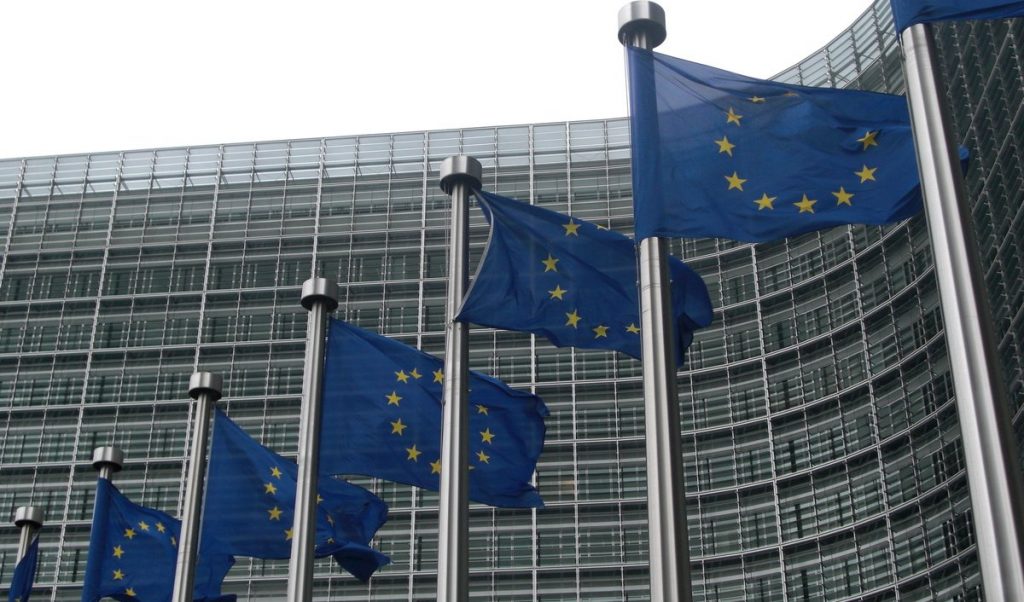
The EEAS, the European Union’s diplomatic service has released the statement on the appointment of judges to the Supreme Court of Georgia.
As the Spokesperson states the selection procedure did not adhere to all recommendations made by the Venice Commission and was characterised by key shortcomings, including a lack of transparency that undermines a genuinely merit-based nomination process
The Georgian Parliament appointed yesterday 14 members of the Supreme Court, a key institution for the proper functioning of Georgia’s legal system. The selection procedure did not adhere to all recommendations made by the Venice Commission and was characterised by key shortcomings, including a lack of transparency that undermines a genuinely merit-based nomination process. A number of the appointed candidates do not enjoy broad public trust, as was obvious in the course of the selection process. While the hearings carried out in the Parliament were transparent, more efforts should have been devoted to justify the choice of candidates ahead of the final vote.
Georgia’s commitment to uphold the highest standards of ethics and integrity in its judiciary remains key for the credibility of the judiciary in the eyes of the Georgian citizens and for the advancement of the EU-Georgia agenda. A revision of the selection procedures to take full account of the recommendations of the Venice Commission, as well the shortcomings registered by the OSCE Office for Democratic Institutions and Human Rights (ODIHR) and other key observers, should, therefore, take place ahead of any additional appointments, the statement reads.
Selection procedure to appoint judges to the Supreme Court of #Georgia not transparent,risk for credibility of #judiciary. Important also for relations with the EU. Our statement here: https://t.co/y8hPgaQEjD
— Peter Stano (@ExtSpoxEU) December 13, 2019
Parliament of Georgia has approved 14 judicial candidates to be appointed at the Supreme Court of Georgia earlier on December 12. The voting for 20 judicial candidates has been conducted at a plenary session. The MPs backed 14 of the 20 nominated judicial candidates and five were rejected.
The Parliament approved the Draft Resolutions on the election of :
- Merab Gabinashvili as a Judge of the Supreme Court with 86 votes 1;
- Miranda Eremadze as Judge of the Supreme Court with 83 votes against one;
- Mamuka Vasadze as a Judge of the Supreme Court with 88 votes;
- Maia Vachadze as a Judge of the Supreme Court with 90 votes;
- Tamar Zambakhidze as a Judge of the Supreme with 89 votes;
- Shalva Tadumadze as a Judge of the Supreme Court with 89 votes against one;
- Vladimer Kakabadze as a Judge of the Supreme Court with 86 votes against one;
- Levan Mikaberidze as a Judge of the Supreme Court with 89 votes against one;
- Giorgi Mikautadze as a Judge of the Supreme Court with 85 votes against one;
- Nugzar Skhirtladze as a Judge of the Supreme Court with 90 votes;
- Lali Papiashvili as a Judge of the Supreme Court with 88 votes;
- Nino Kadagidze as a Judge of the Supreme Court with 85 votes against one;
- Ketevan Tsintsadze as a Judge of the Supreme Court with 85 votes against one;
- Alexander Tsuladze as a Judge of the Supreme Court with 87 votes against one.
Soon after the plenary session The U.S. Embassy echoed the Parliament`s decision and released the statement on supreme court nominees.
As the official statement reads during the hearings, a number of candidates were unable to demonstrate sufficiently their legal expertise or a commitment to impartiality. The U.S. Embassy regrets the list of candidates approved in Parliament today includes such nominees.
U.S. Embassy’s statement on supreme court nominees. https://t.co/hCTOJbL0QT
— U.S. Embassy Tbilisi (@usingeo) December 12, 2019
‘Over recent months the U.S. Embassy has closely watched the process of selection of Georgia’s Supreme Court justices for lifetime appointments. In May we expressed disappointment at Parliament’s adoption of selection procedures that failed to incorporate many of the recommendations of the Venice Commission, OSCE/ODIHR, and the U.S., EU, and Council of Europe missions in Tbilisi. We share the assessment of international observers and Georgian experts that the subsequent candidate selection process in the High Council of Justice lacked transparency and resulted in a slate of nominees that did not fully represent the best qualified candidates.
The hearings for the nominees in the Parliament’s Legal Committee were open and transparent. During the hearings, a number of candidates were unable to demonstrate sufficiently their legal expertise or a commitment to impartiality. We regret the list of candidates approved in Parliament today includes such nominees.
Judicial independence ensures the rule of law, safeguards democracy, and is a cornerstone of economic growth. In order to instill greater confidence in Georgia’s judicial system, we encourage Parliament and the relevant authorities to address the identified shortcomings in the Supreme Court judge selection process before the selection of additional candidates. Additionally, in view of the disorder witnessed in Parliament surrounding today’s vote, we call on all parties to maintain calm and to engage one another in a respectful and constructive manner,’ the statement reads.





